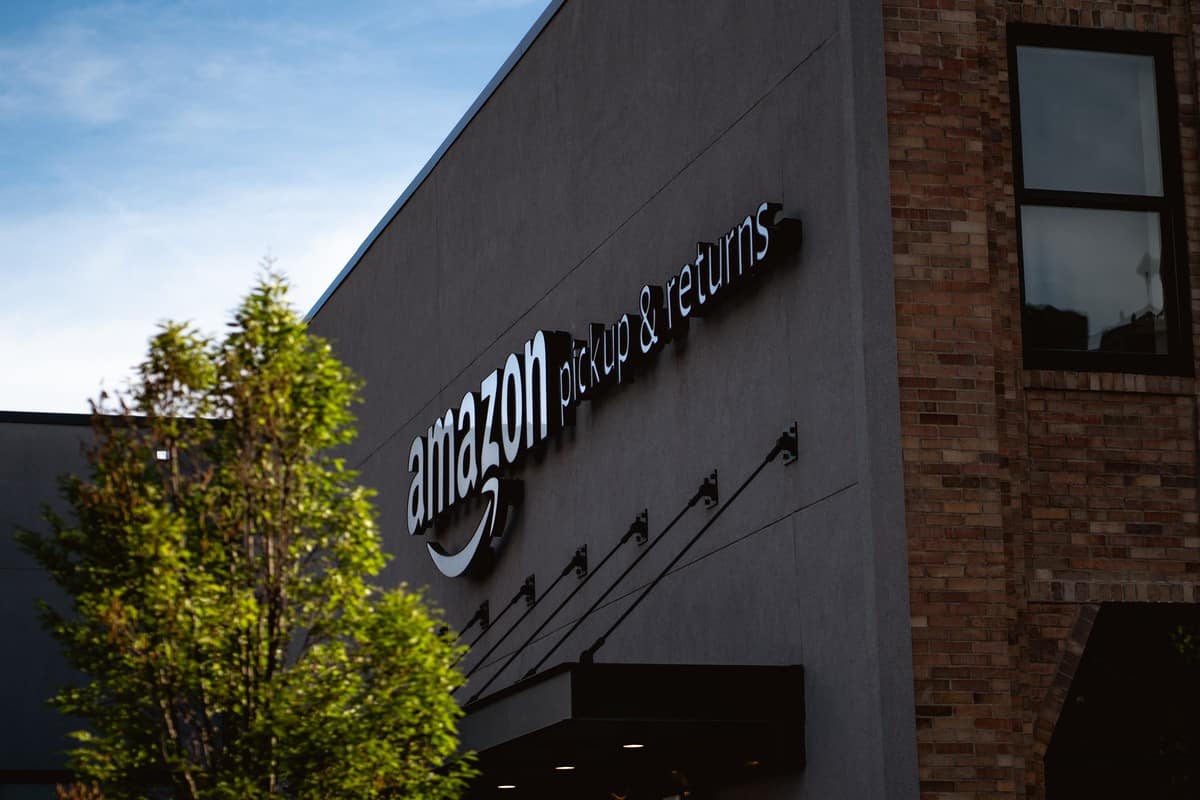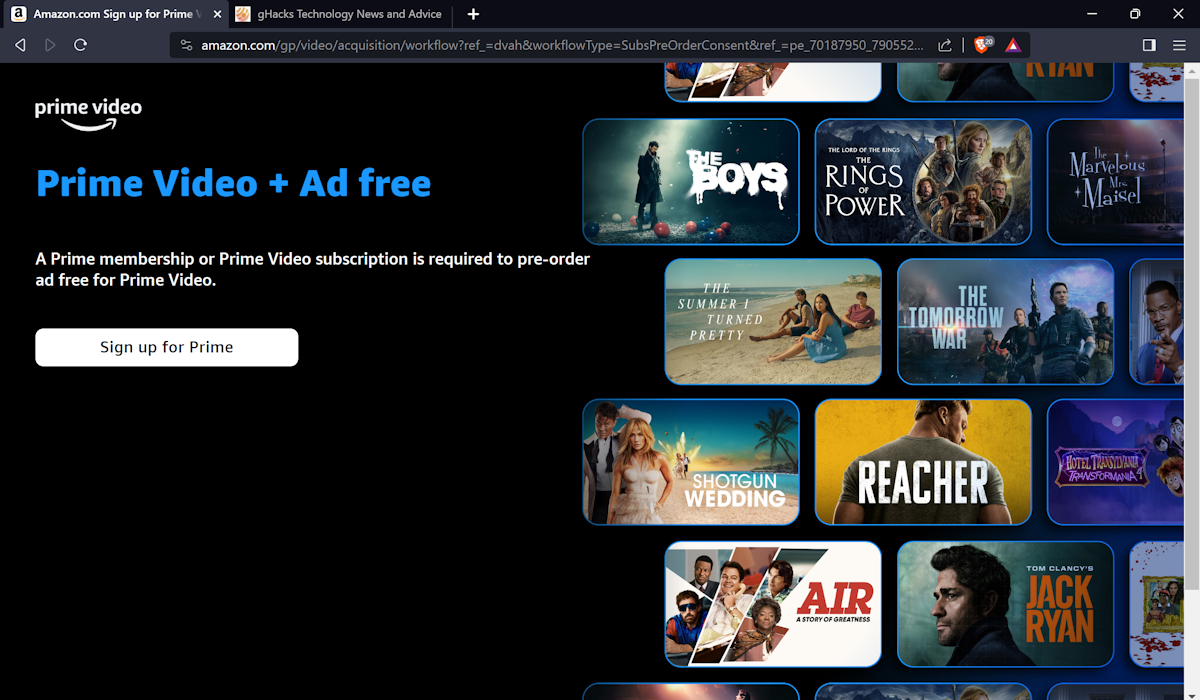FTC is once again after Amazon

The Federal Trade Commission (FTC) has taken a significant step against e-commerce giant Amazon, accusing the company of engaging in anti-competitive practices that have allowed it to establish a dominant presence in the retail industry.
The Amazon lawsuit is backed by attorneys general from 17 U.S. states, who contend that Amazon has utilized a series of unfair and anti-competitive strategies to maintain its monopoly status.
The states involved in the FTC's action include; Connecticut, Delaware, Maine, Maryland, Massachusetts, Michigan, Minnesota, New Jersey, New Hampshire, New Mexico, Nevada, New York, Oklahoma, Oregon, Pennsylvania, Rhode Island, and Wisconsin.

FTC sues Amazon over monopoly allegations
FTC Chair Lina M. Khan highlighted that the complaint provides detailed allegations outlining how Amazon has exploited its monopoly power, resulting in higher prices and diminished service quality for millions of American families and countless businesses.
The FTC and its state partners have accused Amazon of violating antitrust laws in two key areas: its extensive online storefront for consumers and its seller-side marketplace.
The tactics under scrutiny include Amazon penalizing sellers for offering lower prices outside of its platform and aggressively encouraging sellers to obtain Prime status for their products.
Deputy Director of the FTC Bureau of Competition, John Newman, described Amazon as a monopolist that utilizes its market power to raise prices for American consumers and impose high fees on hundreds of thousands of online sellers.
The Amazon lawsuit aims to hold the company accountable for these alleged monopolistic practices and restore fair competition and the whole complaint on Amazon monopoly lawsuit can be found here.

Company's response to Amazon monopoly lawsuit
In response, Amazon's General Counsel, David Zapolsky, argued that the FTC's actions would have adverse consequences, leading to reduced product choices, increased prices, slower deliveries for consumers, and fewer options for small businesses.
Amazon published a blog post about this. The company's comments on the Amazon lawsuit can be found here.
Previously: FTC sues Amazon over Prime's dark patterns.
How will the Amazon monopoly lawsuit end potentially?
The outcome of the Amazon monopoly lawsuit, which has been brought by the Federal Trade Commission (FTC) in conjunction with attorneys general from 17 U.S. states, remains uncertain and hinges upon the unfolding legal proceedings and the arguments presented. There are several potential scenarios in which this lawsuit could ultimately reach its conclusion.
Amazon, in response to the allegations, has vehemently denied any wrongdoing and is anticipated to mount a robust legal defense. The company is likely to contend that its business practices do not violate antitrust laws and that it has not engaged in anti-competitive behavior.
Another potential avenue for resolution is a legal settlement between Amazon and the FTC. Such settlements are a common occurrence in antitrust cases and could involve Amazon agreeing to specific restrictions or modifications in its business operations without admitting guilt or misconduct.
Should the case progress to a trial, a verdict will be rendered by a judge or jury. The outcome of the trial could swing in favor of either the FTC or Amazon, contingent upon the strength of the evidence presented and the efficacy of the legal arguments put forth.

Inevitably, regardless of the trial verdict, it is likely that the losing party will pursue appeals. This could set the stage for a protracted legal battle that may ultimately find resolution in higher courts, potentially including the U.S. Supreme Court.
In the event that Amazon is found culpable of anti-competitive practices, the FTC and state attorneys general could pursue regulatory actions. These actions might involve imposing financial penalties, mandating alterations to Amazon's business practices, or even contemplating the division of the company into smaller entities to stimulate competition.
Antitrust cases can be complex and lengthy, and the final outcome is often difficult to predict. The Amazon monopoly lawsuit will likely be closely watched by legal experts, the tech industry, and policymakers due to its potential to shape the future of competition in the online marketplace.
Advertisement
















Is it the State making Amazon a monopoly, or Amazon’s business practices?
Thant being said, as far as monopolies go, they are less harmful than Google and its search, email, browser, maps, play store, monopolies.
How is gmail a monopoly? or chromium? or maps? some of these are weird.
Chrome controls over 70% of the browser market, most of the other 30% are Chrome clones. You don’t seriously consider Firefox competition do you?
Google maps has near total market dominance as does gmail. F-Droid is great, but its marketshare is a rounding error compared to the play store.
FTC is determined to dictate what associations businesses may enter into under the guise of protecting society from non-competitive institutions.
Freedom of Association is a very basic social right of society itself rather than just individuals.
A civil liberty that the FTC opposes and much of the state too
But thats not what the suit is about anon., its about its monopoly power, which we all know influences its market behavior. Simply put, when AMZ raises prices, its competitors do it too. A price increase for no other reason than AMZ can do it, and consumers are forced to pay more for something that is not based on simple supply and demand factors.
Mklonopoly power is the state’s excuse.
Beneath it lies the ability of the state to decide whom a business may associate with simply by making that claim.
Lastly, we have many monopolies in small towns such as a single gas station and a single store.
It is COERCIVE MONOPLIES like the state itself that are immoral
State decides? Well yes, where you live in Eastern Europe, its still socialist controlled.
Suggest you take a university level economics to undestand the difference between micro and macro economics theory.